Spotlight
TB catch-up plan under way in Western Cape, but old challenges linger
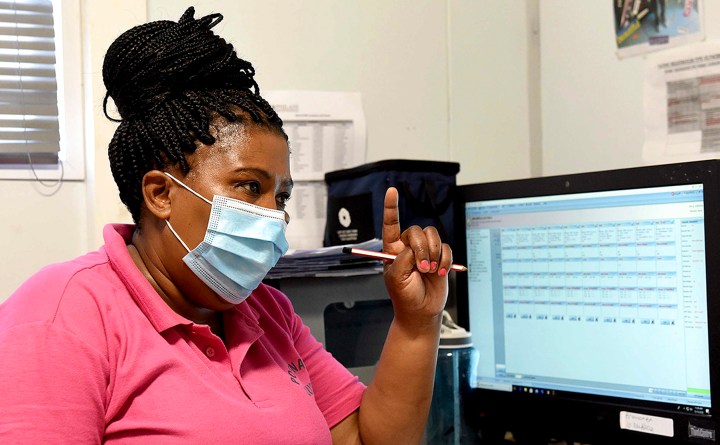
In 2019 about 360,000 people in South Africa fell ill with tuberculosis (TB) and about 58,000 people died due to the disease, according to a World Health Organisation report.
The Covid-19 pandemic has exacerbated the already alarming numbers, with some TB patients stopping treatment during lockdown. Spotlight looks at the plans the Western Cape Health Department has in place to get its TB programme back on track and finds old challenges still remain.
The World Health Organisation report can be accessed here.
Health experts like Professor Linda-Gail Bekker, Director of the Desmond Tutu HIV Centre, say defaulting on treatment plays a major role in the country’s escalating TB deaths. And the Covid-19 pandemic has exacerbated an already alarming situation, with many TB patients defaulting on treatment during lockdown.
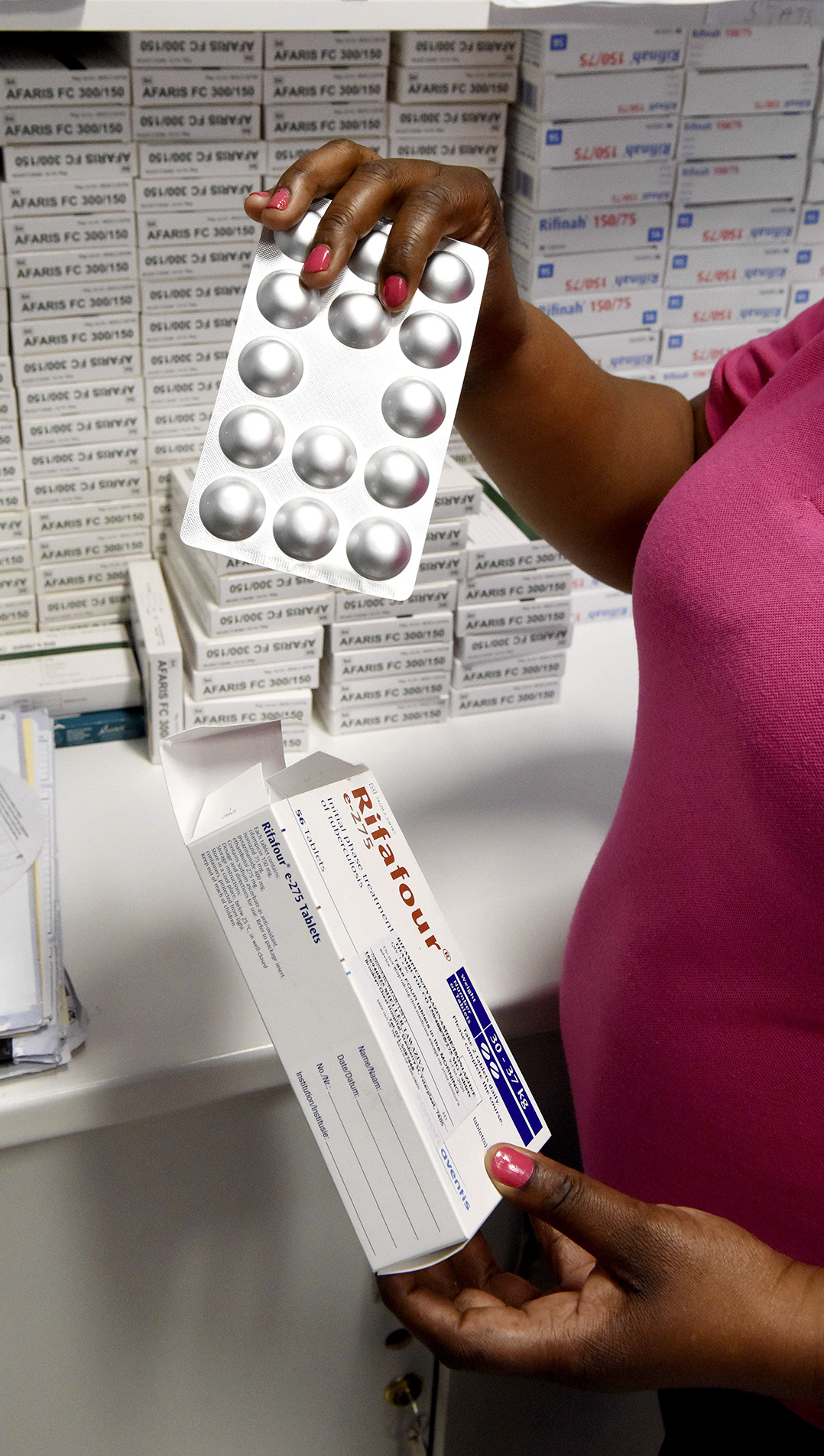
Tuberculosis medication at Site B Community Health Centre in Khayelitsha. (Photo: Nasief Manie/Spotlight)
Acknowledging the impact of Covid-19 on the country’s TB and HIV response, Health Minister Dr Zweli Mkhize said it is time for South Africa to refocus on these diseases and non-communicable diseases (NCDs).
In the Western Cape, measures are in place to get the TB programme back on track. But despite the new TB catch-up plan, health workers still battle old challenges, including stigma that hampers treatment adherence.
Fear TB more than HIV
At the Site B Day Hospital in Khayelitsha, Zanele Ndibongo, a community healthcare worker, spends her days calling up TB patients who have stopped taking treatment. Seated at her desk with dozens of files of TB patients, Ndibongo tells Spotlight that treatment defaulting is still and “will remain a challenge for many years to come”.
Community health workers (CHWs) track these patients to ensure they get on, and stay on, their TB treatment. But this is not easy, says Ndibongo. The reasons vary from people refusing to open their doors or not taking calls. This was the case even before the catch-up plan and lockdown.
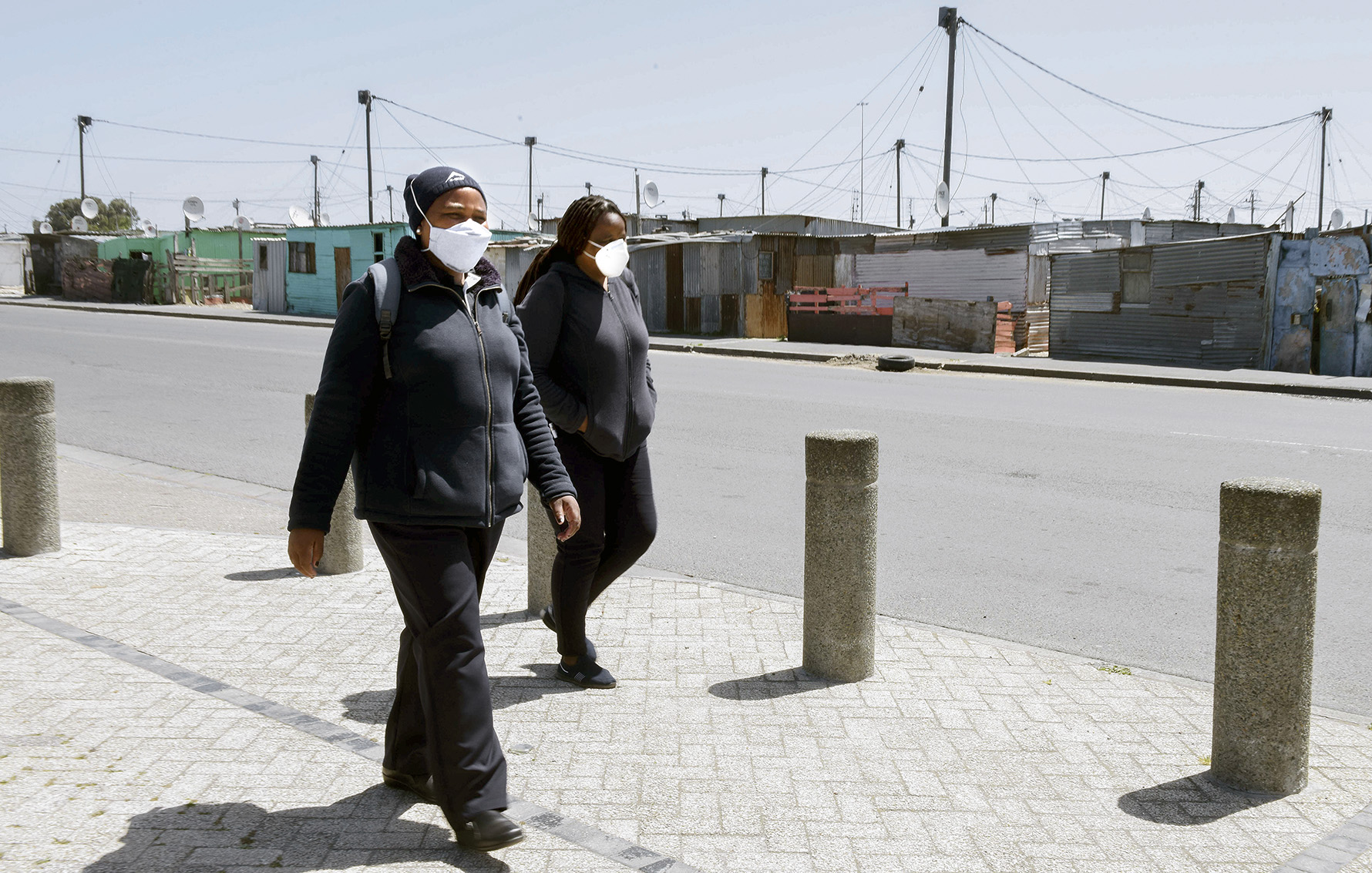
Community health workers walking the streets of Site B in Khayelitsha delivering medication to tuberculosis patients. (Photo: Nasief Manie/Spotlight)
“Our team has to persist because we want them to get better.”
Ndibongo says she finds that people fear TB more than HIV.
Decline in testing
The Western Cape Department of Health acknowledges the impact Covid-19 had on the provision of health services to chronic patients.
“Many chronic patients avoided going to clinics for chronic care,” says departmental spokesperson, Monique Johnstone, adding that they have also seen a significant increase in patients who defaulted on their TB treatment.
In June 2020, the province saw a 47% decline in TB testing and a 33% decline in the number of patients diagnosed with TB compared to previous years, says Johnstone. “Our response to chronic disease management, including TB, is being scaled up systematically over the next six months to increase the number of TB cases detected,” she says.
To do this, the department tells Spotlight, they intend launching a project jointly with the National Health Laboratory Service (NHLS) to reintroduce TB testing in the Western Cape by relooking at the way they are proactively finding people to test for TB “like we did with Covid-19 community testing and screening”.
“With the help of CHWs, we will go into communities to actively find and screen people for TB as part of our community-oriented, primary-care approach. We are reviewing our data-led approach to find people who need to be tested for TB,” says Johnstone.
Fearing for one’s safety
Meanwhile, CHWs like *Zimbini tells Spotlight they fear for their safety every day as they go from house to house checking on TB patients.
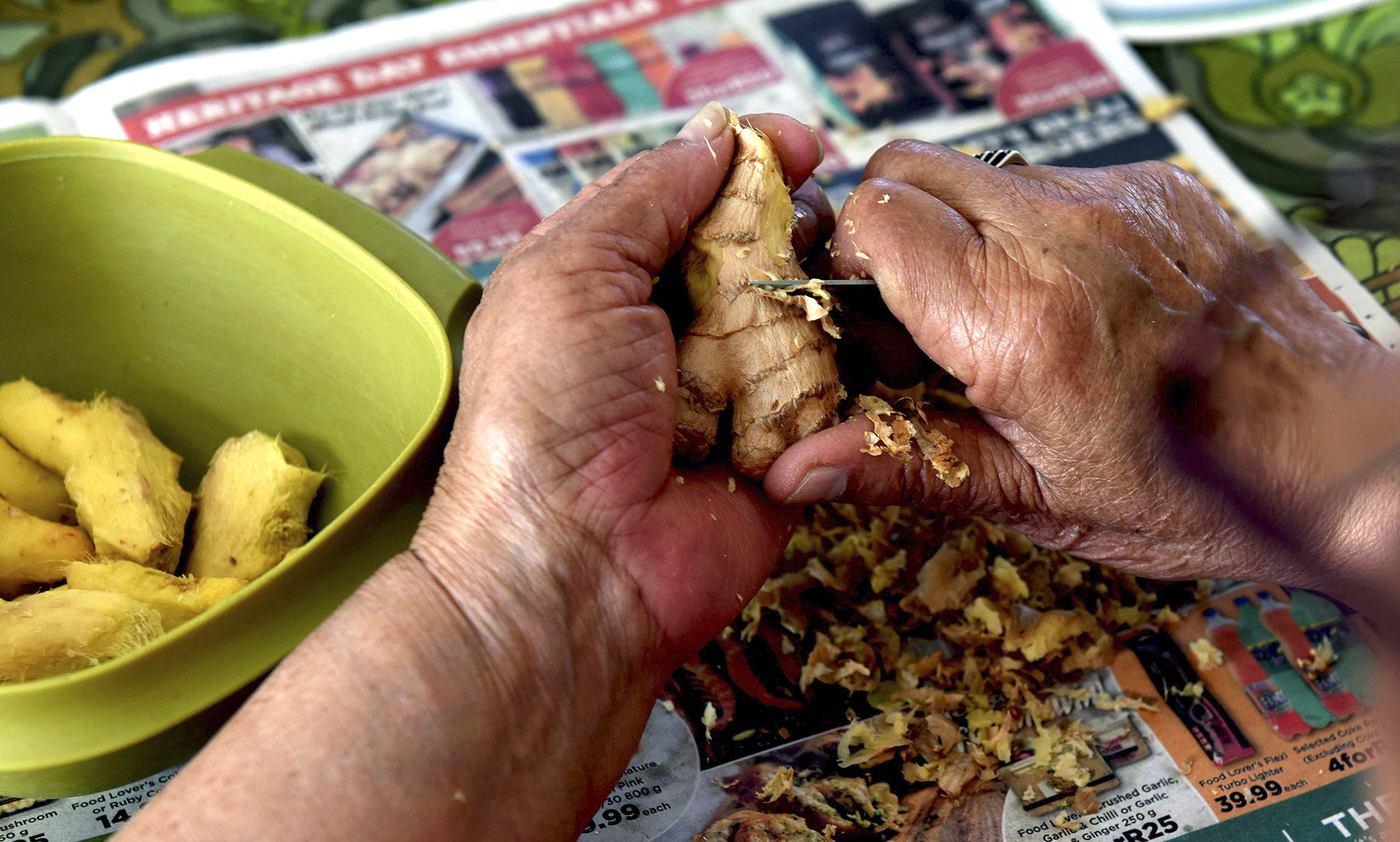
Despite all the challenges that community health workers face, they admit that there are tuberculosis patients, like Gogo Nozamile, who cooperate with them and regularly take their medication. (Photo: Nasief Manie/Spotlight)
“We get treated like police who are out to arrest criminals in their hideouts, but all we do is look after the community and ensure that they take their medication,” she says.
Johnstone acknowledges the important role CHWs play.
“CHWs play a key role in actively tracking down patients who defaulted on their treatment to ensure they are placed on to treatment again and receive the necessary support. If they [CHWs] are raising safety issues, that will be looked into as they are doing a sterling job.”
Getting TB patients back on track
Johnstone explains that a multidisciplinary team, comprising Western Cape Department of Health and NPO staff, review TB attendance at primary healthcare facilities and TB patients who did not attend their appointments are identified.
“We have an electronic system for our community-based services, as well as primary healthcare services that we use to flag patients for follow-up visits by the community healthcare worker. A list is compiled of TB patients who need a follow-up visit or who missed their appointments. The list is given to the relevant community health workers who will visit the patient. They will ask the patient why they missed their appointment, make sure they are taking their medication, and assist the patient to make a new appointment if they have defaulted on their appointment or treatment. The patient will also be screened for Covid-19 and other chronic conditions,” says Johnstone.
She also points out that targets for door-to-door visits by community healthcare workers are monitored daily and amended where necessary.
“Patients are urged to give their correct contact information so that we can support them in their recovery journey. If a patient defaulted on their treatment or missed an appointment, we ask that they contact their clinic so that we can welcome them back and ensure they receive the appropriate treatment for their condition,” she says.
If someone is on TB treatment or suspects they may have TB, it is best for them to visit their nearest clinic, advises Khayelitsha and Eastern Substructure communications officer, Sithembiso Magubane.
“A community health worker in their community will then be assigned to them to support them with their treatment and to follow up on them. Community health workers work with demarcated areas allocated to their local health facilities,” Magubane explains. “Adherence to treatment is very important to cure TB, control the spread of infection, and minimise the development of other serious forms of TB.”
New catch-up plan, old challenges
But, says Magubane, stigma often threatens to derail their efforts.
“Stigma is still a major contributing factor to people hiding their status from families and communities, and not taking their medication. Once a person is known to be suffering from TB, then they get isolated. No one wants to be close to them because of fear of being infected, and they get labelled and called names. As a result, for fear of stigma, people start to default and act strong and healthy,” she says.
During a visit to Khayelitsha, Spotlight’s journalist saw first-hand how some TB patients navigate the stigma attached to the disease.
In Site B, *Gogo Nozamile’s coughing can be heard from a distance as we make our way to her house. Spotlight’s journalist and photographer are accompanying CHWs Khayakazi Mdiza and Thembakazi Mdyeshana.
They are delivering Gogo Nozamile’s TB medication. Opening the door, Gogo’s eyes light up as the CWHs unwrap the medication. She pours a glass of water and gulps down two tablets in one go.
“This is my muti and I have no other choice but to take these meds if I want to realise my dream of reaching 80,” the 68-year-old Gogo says with a chuckle.
She and her son, who was not around during the visit, contracted TB in August and have been religiously taking their medication.
Gogo Nozamile does not want her picture taken.
“No, no, no. Already we are a laughingstock in this community because people still fear this disease. They keep their distance from us because they fear that we might infect them,” she says, but is happy for us to tell her story.
The CHWs say they daily face the challenge of having to reassure their patients that they need not be ashamed of having TB.
Stigmatising language
TB survivor Phumeza Tisile who works with the organisation TB Proof says even the word “default” is stigmatising on its own.
“The correct term will be patients who have stopped taking their TB medication.”
She says there are many factors that make people stop their medication.
“For one, some people do not go to the clinic that is close to them, simply because they do not want to be seen by their communities going to the clinic every day for DOTS (directly observed treatment), thus, when they feel better they stop taking their medication all together and stop going to the clinic.”
Tisile says she finds DOTS “problematic”.
“Patients are already ashamed that they have TB, now they have to deal with being watched while they take their medication,” she says.
Tisile says that awareness and education can play a vital role. “People need to understand that anyone can get TB as it is an airborne disease. Anyone who breathes can get TB,” she says.
“Now if you have a cough, people just assume that you have Covid-19, and TB testing comes last. There should be mobile clinics and support for those who are on treatment in their homes, Community healthcare workers do this so well,” she says.
Tele-medicine approach
During an earlier media conference, Head of the Western Cape Health Department, Dr Keith Cloete, said that based on the lessons learnt from the VECTOR project (Virtual Emergency Care Tactical Operation) during Covid-19, it will be expanded to routine health services including TB, diabetes and antenatal services. The project is based on a tele-medicine approach.
The department in a statement said it is providing counselling support telephonically for “families who are not comfortable with community health workers entering their homes”.
“Healthcare support and guidance is provided by the nursing coordinator and community health workers at the family’s doorstep or telephonically to ensure the health of the patient.”
Staying alive, stay on treatment
CHWs like Mdiza and Mdyeshana who daily walk the streets for TB tracing and treatment services say despite the dangers and other challenges, they are determined to see their patients getting better.
Having worked as a CHW for the past three years, Mdiza says the job has many challenges, but she is driven by her passion for it.
“It is not an easy job because the very same people we are trying to help beat TB by offering them medication are calling us names. Because of the stigma attached to TB in our communities, the patients feel embarrassed when we come to their homes. They say we are making them a laughing stock in the community. As a result, most patients lock their doors when they see us descending on their homes. Some even hide,” says Mdiza. “Some even set their dogs on us. We encounter a number of traumatic experiences. But we have no choice but to soldier on.”
Despite all the bad experiences, Mdiza admits there are some patients who are co-operative. And she says nothing brings joy to her heart more than seeing a patient finishing the six-month period and beating TB.
As we drive around the community, she points to a man sitting in the shade enjoying beer with his friends. “He used to be my patient, and he finished his medication. Some show a lot of dedication in taking their medication and get better,” she says.
In 2010 her younger brother succumbed to TB and she says that was when she decided to become a CHW and help in the fight against TB.
“I think that’s what drove me into this job and what keeps me going at all times,” she says.
‘To stay alive, you have to take it’
Tisile, who survived XDR-TB that left her temporarily deaf, said she was told more than once that she might die from TB as her chances of surviving were 20%. She survived, but became deaf and had to undergo surgery for cochlear implants to restore her hearing.
“TB is curable. The treatment is horrible, but to stay alive you have to take it. To those who have TB, it is not the end of the world. There’s life after TB,” she says. “People must continue taking their medication as prescribed, and there’s nothing to be ashamed of when you have TB,” she says.
“I know it is associated with many negative things such as ‘a poor man’s disease’. Anyone can get TB. It does not discriminate when it comes to race and socioeconomic status.” DM/MC
*This article was produced by Spotlight – health journalism in the public interest.
Sign up for our newsletter.

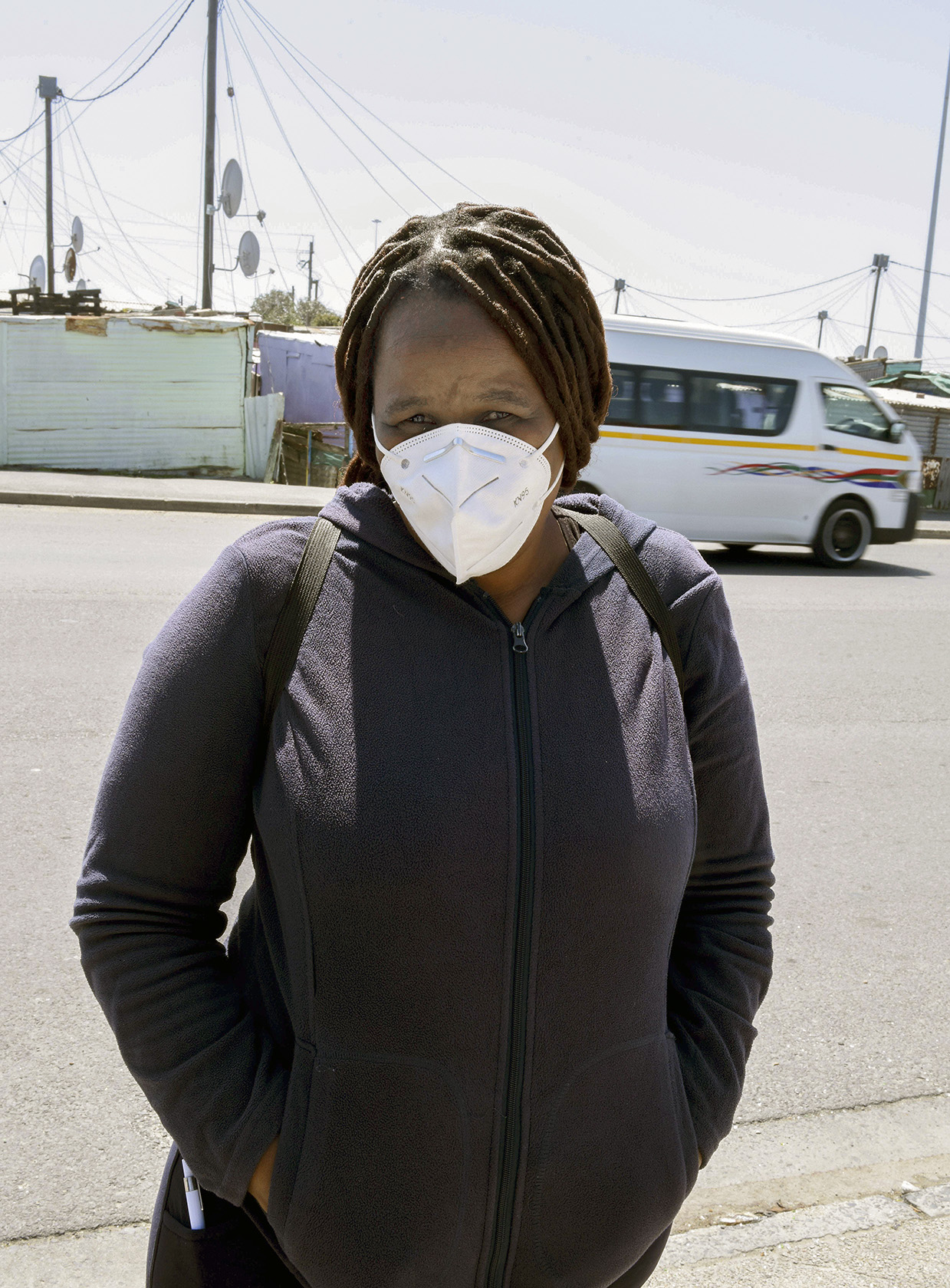
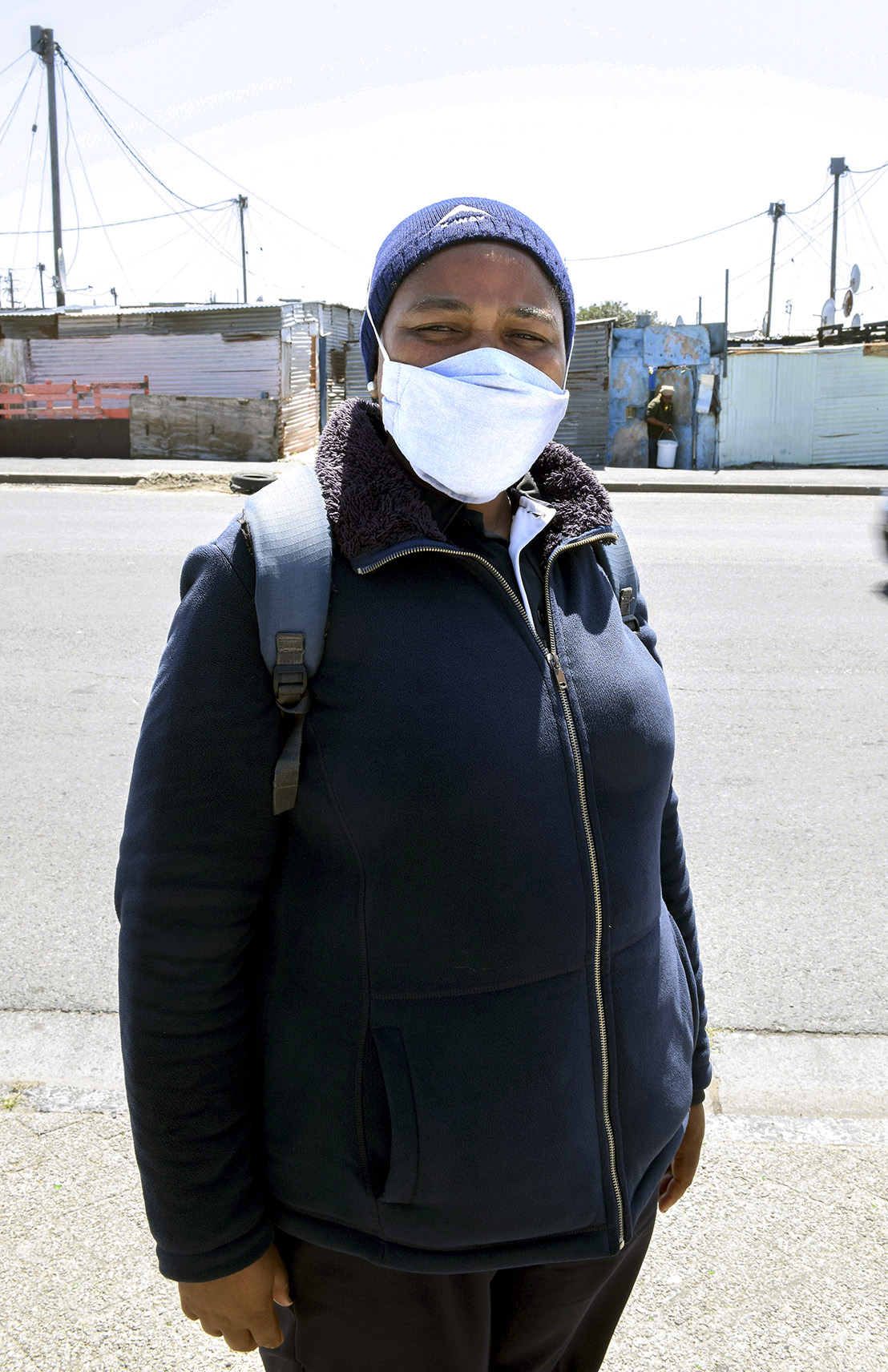
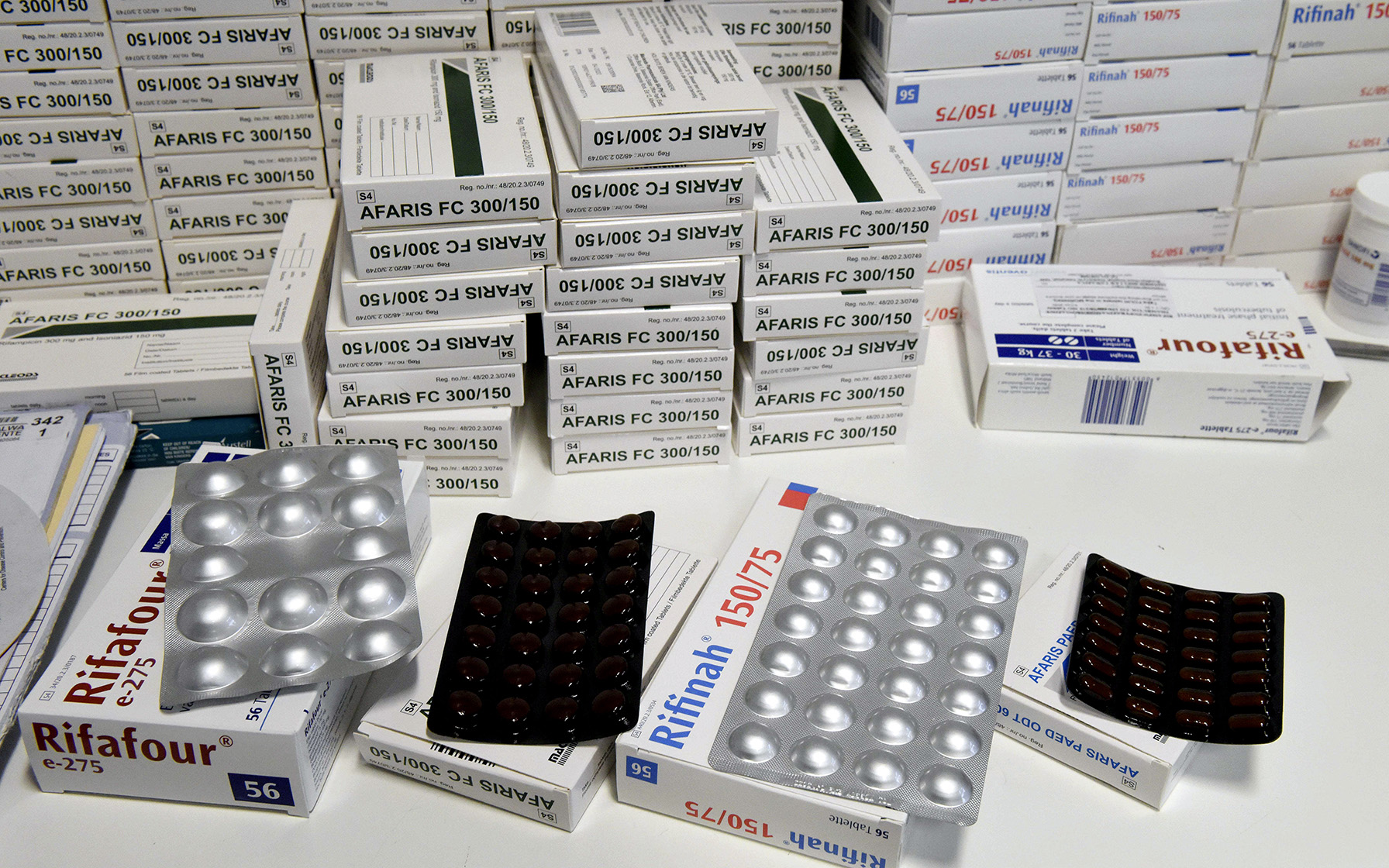




















 Become an Insider
Become an Insider
Comments - Please login in order to comment.